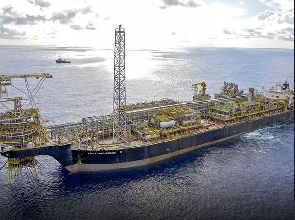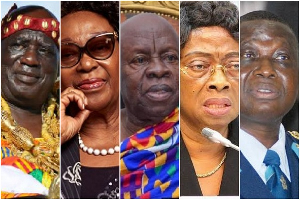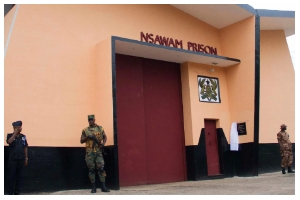The recently approved Plan of Development (PoD) for Pecan Energies’ Deepwater Tano/Cape Three Points (DWT/CTP) project is anticipated to revitalise the country’s declining oil production, says Nana Amoasi VII, Executive Director-Institute for Energy Security (IES).
Nana Amoasi VII expressed optimism about the potential of Pecan Energies’ PoD to reverse the downward trend in Ghana’s oil production over the past three years. He highlighted the significance of the project’s successful development and subsequent production in bolstering the country’s overall output.
“Certainly, over the last three years our oil production has declined; and so if Pecan is going to be developed and it moves into production, it will almost certainly increase our production and reverse the declining oil production that we have seen in the past three years,” stated Nana Amoasi VII.
“We only hope that the plan of development is one that will get the best out of the fields, so as to improve on our current production rate,” the IES Director noted.
His comments come as the nation strives to regain its position as a major oil-producing country following the 2022 annual report of the Public Interest and Accountability Committee (PIAC), which showed that oil production has declined for three consecutive years.
According to the report, crude oil production stood at 71,439,585 barrels in 2019. However, this figure dropped by 6.32 percent to 66,926,806 barrels in 2020; marking the beginning of the downward trend.
The decline persisted in 2021, with production plummeting further to 55,050,391 barrels and representing a significant 17.75 percent decrease compared to the previous year. In 2022, crude oil production continued its downward trajectory by reaching a new low of 51,756,481 barrels, reflecting a decline of 5.98 percent.
On average, the country experienced a cumulative decline of 10 percent over the three-year period.
The successive annual decline in crude oil production has raised concerns about the impact on Ghana’s economy, as the oil sector plays a crucial role in driving revenue generation and fostering economic growth.
Responding to concerns about the involvement of personnel from Aker Energy in the Pecan project, Nana Amoasi VII emphasised the differences between Aker’s previous challenges and the current situation. He clarified that the primary difficulties encountered by Aker Energy were related to financial constraints rather than managerial capacity.
“You still have the old Aker Energy management going to handle Pecan Energies. If it is about managerial capacity, there’s a bit of difference; but you’ll understand that the challenges of Aker in the past had to do with finance,” explained Nana Amoasi VII.
“It was a financial challenge, and so if Pecan is taking over with strong support from the Africa Finance Corporation then this is a different setup, and we can only wait and see what the new arrangement will be like. But I don’t think moving the local management component of Aker to Pecan Energies is any threat to the plan of development,” he added.
Pecan Energies, operator of the DWT/CTP block offshore, has received approval for its Plan of Development PoD.
The project, with an estimated CAPEX of US$3.5billion, aims to produce 268 million barrels in two phases from the Pecan field.
AFC, the new owner of Pecan Energies, is enthusiastic about the project’s potential to contribute to the economy and sustainable growth opportunities. With extensive experience and financial support from AFC, the project is expected to be executed efficiently.
Business News of Wednesday, 5 July 2023
Source: thebftonline.com

















